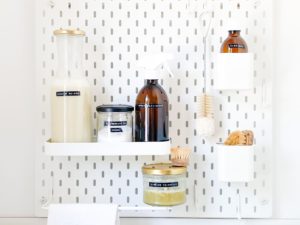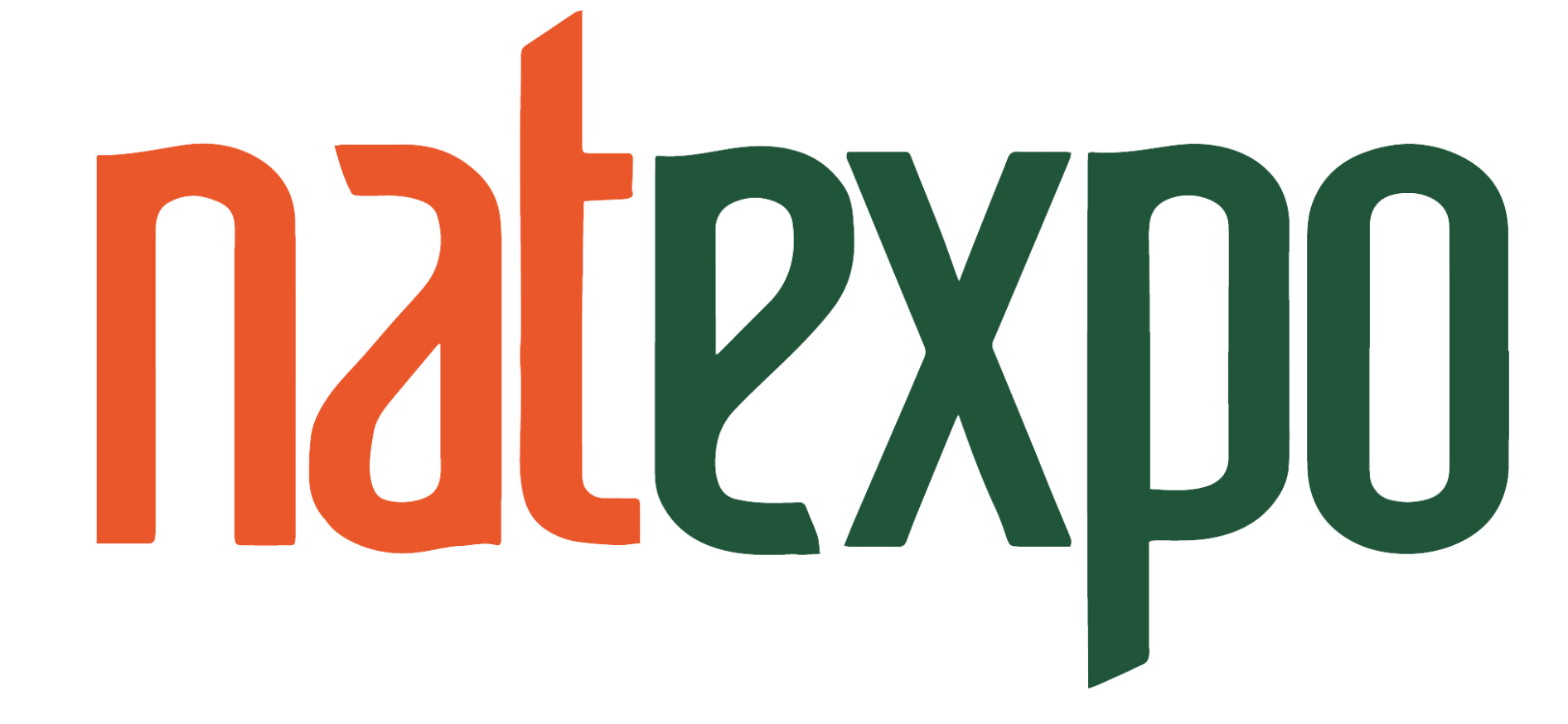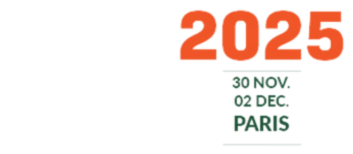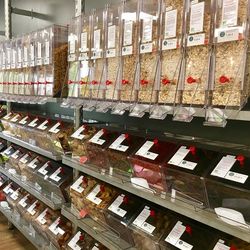The announcement rang out as the best news of the year, sounding the death knell for an era soon to be over: in spring this year, Europe ratified the ban on single-use plastics by 2021, giving increased visibility to a sector passionately committed to building a sustainable world. All of our daily actions have been changed as a result, and what used to be the crusade of a few is now everyone’s business. 72% of French people say they are interested in ecological issues, according to a recent Harris Interactive survey. Now everyone has started sorting, recycling, composting, buying second-hand, finishing their plates, and filling their cupboards with jars, preferring bulk to disposable packaging and the virtues of a simple carafe to those of a plastic bottle. New reflexes have appeared, coupled with a green awareness which, most often, was just waiting to be released from its chrysalis. But deep down, what can a zero-waste life look like? Because, to quote Béa Johnson, activist of the international Zero Waste movement and author of the book Zéro Déchet (pub. J’ai Lu), “The best waste is waste that doesn’t exist”. The French blogger, who lives near San Francisco, claims that a year of her rubbish fits into a quarter-litre jar.
THE FRENCH MORE CONCERNED AND MORE COMMITTED
Far from this inaccessible Holy Grail, each French person still produces 568 kilos of household and similar waste per year, twice as much as 40 years ago, according to ADEME, the French Environment and Energy Management Agency. And yet, struck late by the discovery of the famous “6th continent” and conscious of the urgency of a change of habits, 66% of them say they have already bought loose goods, according to a YouGov survey for the HuffPost, and 88% of them would enthusiastically welcome the return of deposit-return in supermarkets. In addition to the key arguments of protecting our environment (by reducing our carbon footprint on a human and individual scale), promoting short selling channels, and eco-responsibility (feeling part of a vast and ambitious project), the notion of social connections is also part of this, and more prosaically, that of a cheaper lifestyle.
EVER MORE INNOVATION IN ALL SECTORS
In response to these new expectations and in a rapidly growing market – €850 million in sales each year for loose goods alone, compared to barely €100 million in 2013 – a whole ultra-virtuous sector is forming, developing new solutions every day in a range of sectors – food, hygiene and cosmetics, home care, etc. – for professionals and private individuals alike, deploying its research efforts throughout the production chain, from raw materials to transport, and whose ever-increasing population will be presenting their new products at the upcoming Natexpo exhibition, on 21 and 22 September 2020 in Lyon. Here is a closer look at some of these companies that are heavily involved in the zero-waste movement.
THE LOOSE GOODS BOOM
Applymage-eco supplies local shops with pretty containers of all sizes that are designed and made in France and intended for the dispensing of food products. A special mention should be made of its bespoke solutions such as the delivery trike developed for the touring grocery Au Grain Près in Marseille.
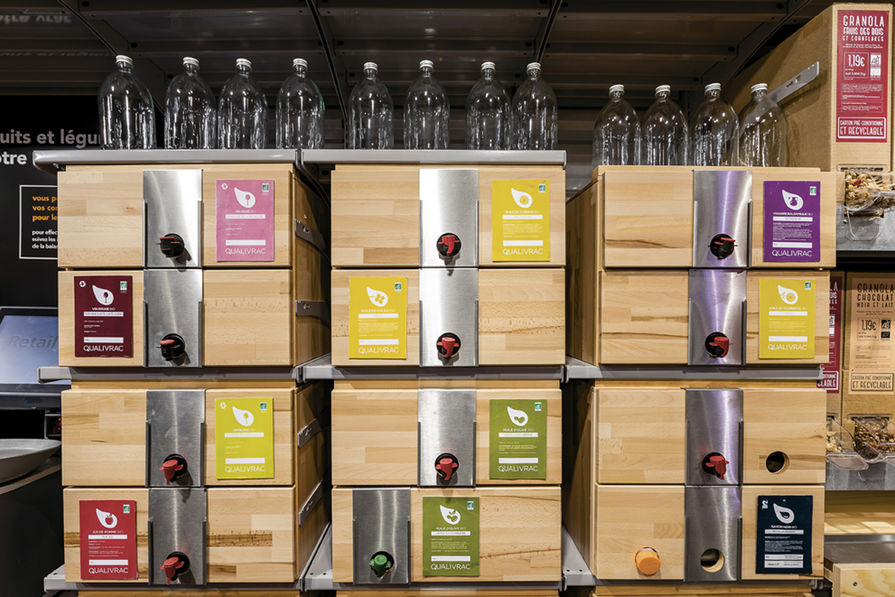
SLOW COSMETICS
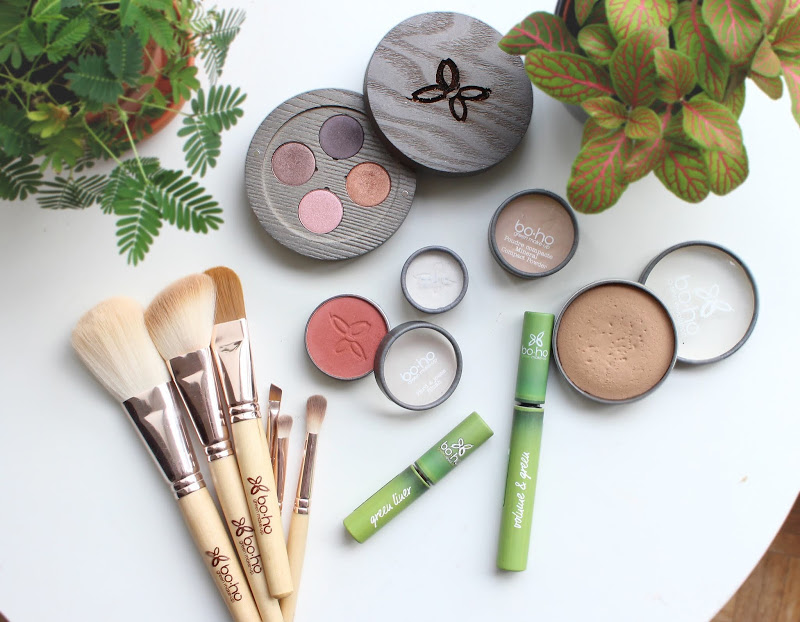
NATURE ON TAP
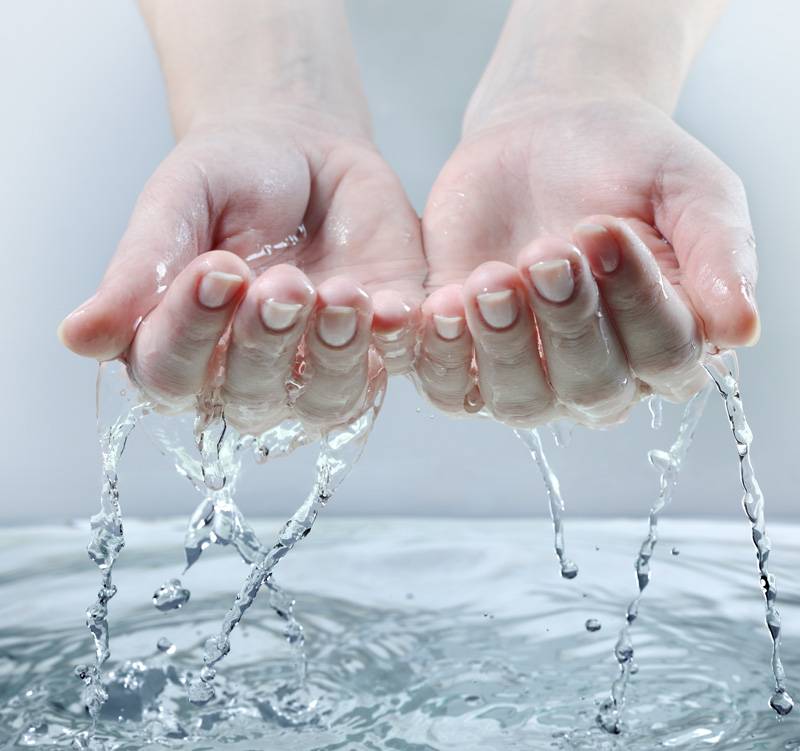
SNACKING WITH A HEALTHY CONSCIENCE
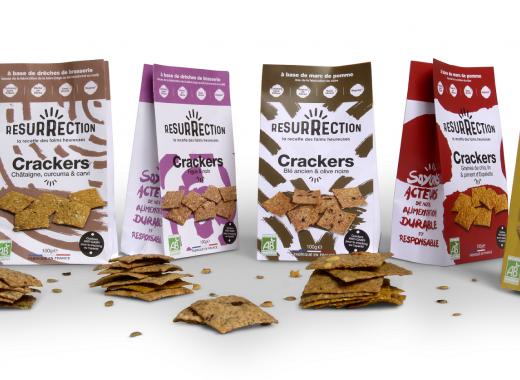
NEW REFLEXES
